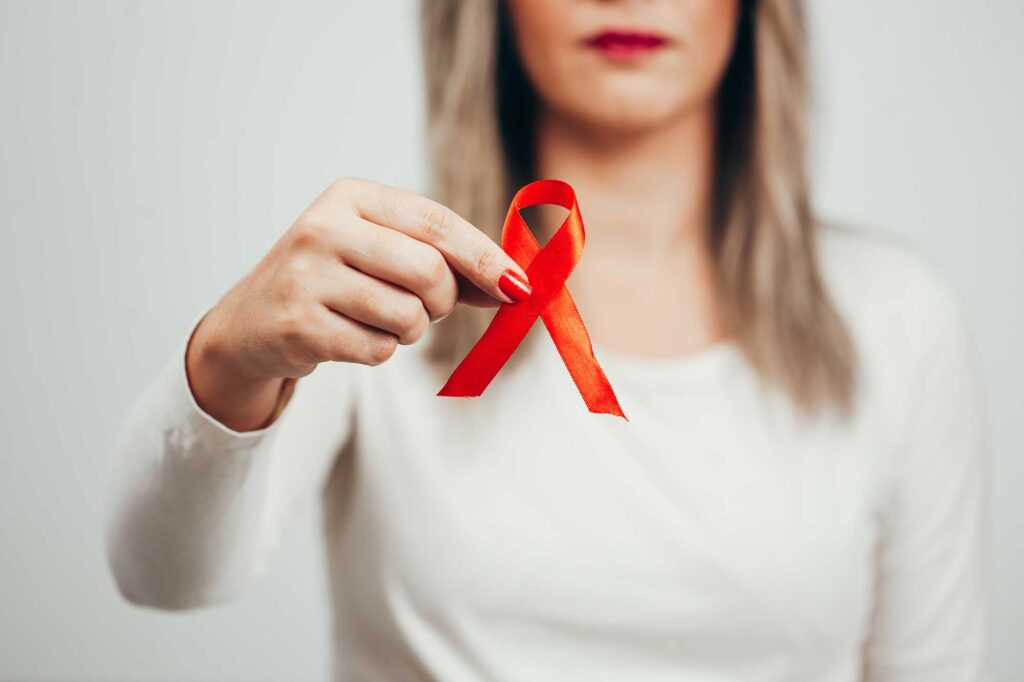Although a new injectable anti-HIV drug, cabotegravir, could be instrumental in drastically reducing the spread of disease, its price tag may render the drug unattainable in the countries where it is most needed. The World Health Organization (WHO) estimates that more than two-thirds of new HIV infections worldwide are in Africa and that 470,000 African people died from HIV-related causes in 2020.
The new drug is produced by ViiV Healthcare, a pharmaceutical company focused on eradicating HIV. Based in the UK, ViiV is a global business jointly owned by GSK, Pfizer and Shionogi. “We believe that widening access to cabotegravir could be game-changing in HIV prevention and could significantly contribute towards the goal of ending the HIV epidemic,” a ViiV Healthcare spokesperson said. The high cost of the drug, however — estimated at $3,700 per vial in the US — creates a significant barrier to its global distribution.
Cabotegravir, which is administered in a clinic every two months for HIV pre-exposure prophylaxis (PrEP), was recently recommended for use by the WHO. A clinical trial found that it is more effective than the antiretroviral pill tenofovir disoproxil fumarate (TDF), which the agency recommended in 2015 and is currently available in 80 countries in inexpensive, generic forms.
Effective and Long-Lasting Prevention
A Phase III clinical trial in South Africa between 2017 and 2020 compared the effectiveness of cabotegravir and TDF for HIV prevention among at-risk women.
Sinead Delany-Moretlwe, director of research at the Wits Reproductive Health and HIV Institute in Johannesburg, led the trial. Results showed that cabotegravir performed extremely well. Out of a total of 3,224 women participants, half were given TDF and half received cabotegravir injections. Both drugs performed well, but of 40 total infections, only four occurred among women receiving cabotegravir.
Cabotegravir has another leg up on the competition. In the countries most affected by HIV, the disease carries a dangerous stigma. While uninfected people can use pill medications discretely, women may be inclined to avoid carrying or using drugs in pill form to escape social sanction or violence.
Patients receive cabotegravir injections in the privacy of a clinic. Moreover, the drug’s longer-lasting effects, and every other month dosing regimen, reduce the number of doses needed per year.
Delany-Moretlwe gave this conclusion about the new injectable medication at the 24th International AIDS Conference in Montreal, Canada: “Access to cabotegravir as an additional choice should be a priority.” ViiV seems to be working toward this goal, but the company faces stiff challenges.
A Tall Order
ViiV intends to make the drug available for use in 90 of the world’s lowest-income countries, where most HIV cases occur. Although cabotegravir’s cost is a barrier, ViiV hopes to achieve lower prices through a recently announced voluntary licensing agreement that would allow up to three companies to manufacture and distribute the drug in generic forms.
However, the company needs to reach an exceptionally low price. Deborah Waterhouse, CEO of ViiV Healthcare, received an open letter this summer. It was sent by a group of more than 70 politicians, civil society activists, and heads of philanthropic organizations. They asked the company to price cabotegravir as close as possible to the cost of other HIV prevention drugs, such as TDF. This would mean a price as low as $60 per year, or $10 per dose.
Even with the licensing agreement, ViiV’s projected price for cabotegravir does not reach this mark. The company promised that it would give public programs in low-income countries a “non-profit price” but pushed back against suggestions that $10 was realistic for such a complex drug. Moreover, the company contends that the low price could reduce interest from potential generics manufacturers.
The Bottom Line
ViiV’s pricing decisions remain a significant point of contention. Many involved in the fight against HIV hold critical opinions of the company’s licensing agreement, and the debate over what cabotegravir’s price “should be” continues even as the company pursues large-scale manufacture of its medication.
For example, the Clinton Health Access Initiative, a philanthropic healthcare organization based in Boston, Massachusetts, presented an analysis in February suggesting that generics manufacturers could produce cabotegravir for around $20 per person per year.
Amidst the criticism, ViiV seems confident in its approach. A spokesperson told Nature that the company is welcoming applications from generic manufacturers and that three licenses will be awarded in the first instance. “We have the ability to increase the number of sub-licensees in [the] future if we think the demand signals are supportive and there is a need,” they added.
____
Did you enjoy this blog post? Check out our other blog posts as well as related topics on our Webinar page
QPS is a GLP- and GCP-compliant contract research organization (CRO) delivering the highest grade of discovery, preclinical and clinical drug research development services. Since 1995, it has grown from a tiny bioanalysis shop to a full-service CRO with 1,200+ employees in the U.S., Europe and Asia. Today, QPS offers expanded pharmaceutical contract R&D services with special expertise in neuropharmacology, DMPK, toxicology, bioanalysis, translational medicine and clinical development. An award-winning leader focused on bioanalytics and clinical trials, QPS is known for proven quality standards, technical expertise, a flexible approach to research, client satisfaction and turnkey laboratories and facilities. Through continual enhancements in capacities and resources, QPS stands tall in its commitment to delivering superior quality, skilled performance and trusted service to its valued customers. For more information, visit www.qps.com or email [email protected].






